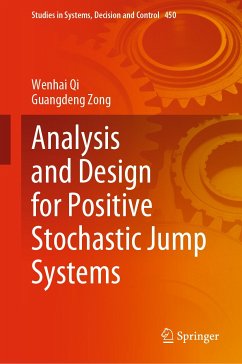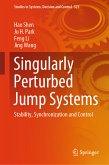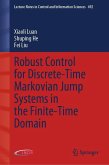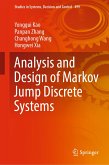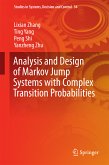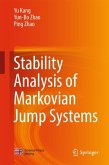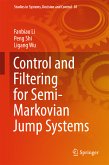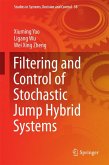The book focuses on analysis and design for positive stochastic jump systems. By using multiple linear co-positive Lyapunov function method and linear programming technique, a basic theoretical framework is formed toward the issues of analysis and design for positive stochastic jump systems. This is achieved by providing an in-depth study on several major topics such as stability, time delay, finite-time control, observer design, filter design, and fault detection for positive stochastic jump systems. The comprehensive and systematic treatment of positive systems is one of the major features of the book, which is particularly suited for readers who are interested to learn non-negative theory. By reading this book, the reader can obtain the most advanced analysis and design techniques for positive stochastic jump systems.
Dieser Download kann aus rechtlichen Gründen nur mit Rechnungsadresse in A, B, BG, CY, CZ, D, DK, EW, E, FIN, F, GR, HR, H, IRL, I, LT, L, LR, M, NL, PL, P, R, S, SLO, SK ausgeliefert werden.
Es gelten unsere Allgemeinen Geschäftsbedingungen: www.buecher.de/agb
Impressum
www.buecher.de ist ein Internetauftritt der buecher.de internetstores GmbH
Geschäftsführung: Monica Sawhney | Roland Kölbl | Günter Hilger
Sitz der Gesellschaft: Batheyer Straße 115 - 117, 58099 Hagen
Postanschrift: Bürgermeister-Wegele-Str. 12, 86167 Augsburg
Amtsgericht Hagen HRB 13257
Steuernummer: 321/5800/1497
USt-IdNr: DE450055826
Bitte wählen Sie Ihr Anliegen aus.
Rechnungen
Retourenschein anfordern
Bestellstatus
Storno

